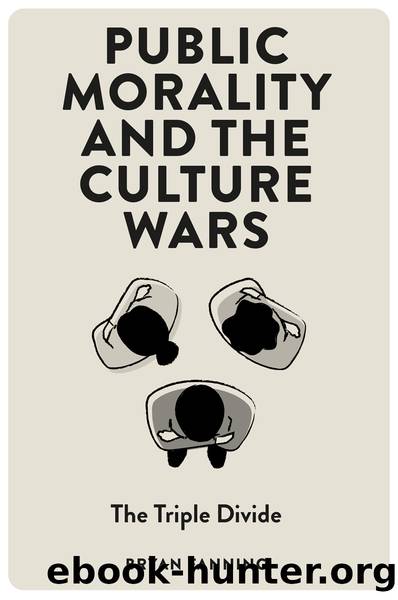Public Morality and the Culture Wars by Bryan Fanning

Author:Bryan Fanning
Language: eng
Format: epub
ISBN: 9781804557242
Publisher: Emerald Publishing Limited
Published: 2022-12-28T00:00:00+00:00
HERESIES AND CIVIL LIBERTIES
American civil religion came to be defined by heresies as well as orthodoxies. During the Cold War, its repressive side was exemplified by the so-called witch-hunts conducted by the House Un-American Activities Committee (HUAC) chaired by the Catholic senator Joseph McCarthy. Arthur Millarâs play The Crucible (1953) drew an overt parallel between the burning of witches in Puritan Salem and McCarthyism. Communists came to be vilified during the Cold War era as the great heresy that stood in opposition to American civil religion. Or to put this another way anti-communism became part of its doctrine. McCarthyism was not solely supported by conservatives and defenders of free enterprise. It was endorsed by liberal Democrats such as Arthur Schlesinger who argued in his book The Vital Center (1947) that preserving American democracy required excluding communists from the political process.30
Anti-communism offered Catholics an opportunity to demonstrate their patriotism and was entirely compatible with Church doctrine. D. G. Hart in American Catholic: The Politics of Faith During the Cold War (2020) argues that during the 1950s Catholic anti-communists âpumped fresh air into the sort of nationalism that rendered the United States, in messianic terms, as a redeemer nationâ.31 The Great Awakening of the 1820s that came to define American public morality had been forged by the so-called mainline Protestant Episcopal, Presbyterian, Methodist churches. Unlike the evangelical churches, these became more and more socially liberal over time. Insofar as American civil religion was essentially derived from Protestantism it was to no little extent renewed by the zeal of Catholic defenders of American values during the Cold War.32 More generally their confident fundamentalism in matters of morality made a strong impression at a time when liberal Protestantism had wavered and had become incapable of restoring âthe moral ground that most middle-class Americans had once trod with self-assurance and authorityâ.33
HUAC was established in 1946 with a remit to investigate âun-American propagandaâ that attacked the form of government guaranteed by the Constitution. The origins of HUAC can be traced to 1930 when the House of Congress conducted investigations of labour leaders, the American Center for Civil Liberties (ACLU) and other groups accused of being communist front organisations.34 Other measures aimed at purging communists from schools and colleges during the 1930s included the introduction of special loyalty oaths for teachers in 21 states (and the District of Columbia) to uphold the law and the Constitution. In 1940, the US Civil Service Commission authorised the dismissal of suspected subversives. These measures laid the ground for a federal loyalty program in 1947 that was supported by both the Democrat and Republican parties.35
One history of American civil liberties debates, which is cited extensively here, describes how a mania for loyalty oaths swept the United States in 1949. These required public officials to swear that they were not members of the Communist Party or affiliated with any such party and that they did not believe in, were not a member of or support any organisation that believes in or teaches the overthrow of the US government by force or by any illegal or unconstitutional methods.
Download
This site does not store any files on its server. We only index and link to content provided by other sites. Please contact the content providers to delete copyright contents if any and email us, we'll remove relevant links or contents immediately.
The Rules Do Not Apply by Ariel Levy(4957)
On the Front Line with the Women Who Fight Back by Stacey Dooley(4867)
The Lonely City by Olivia Laing(4798)
Bluets by Maggie Nelson(4547)
The Confidence Code by Katty Kay(4251)
Three Women by Lisa Taddeo(3422)
Not a Diet Book by James Smith(3410)
Inferior by Angela Saini(3311)
Confessions of a Video Vixen by Karrine Steffans(3301)
A Woman Makes a Plan by Maye Musk(3247)
Pledged by Alexandra Robbins(3170)
Wild Words from Wild Women by Stephens Autumn(3148)
Nice Girls Don't Get the Corner Office by Lois P. Frankel(3034)
Brave by Rose McGowan(2817)
Women & Power by Mary Beard(2767)
Why I Am Not a Feminist by Jessa Crispin(2747)
The Clitoral Truth: The Secret World at Your Fingertips by Rebecca Chalker(2709)
The Girl in the Spider's Web: A Lisbeth Salander novel, continuing Stieg Larsson's Millennium Series by Lagercrantz David(2709)
I Who Have Never Known Men by Jacqueline Harpman(2625)
